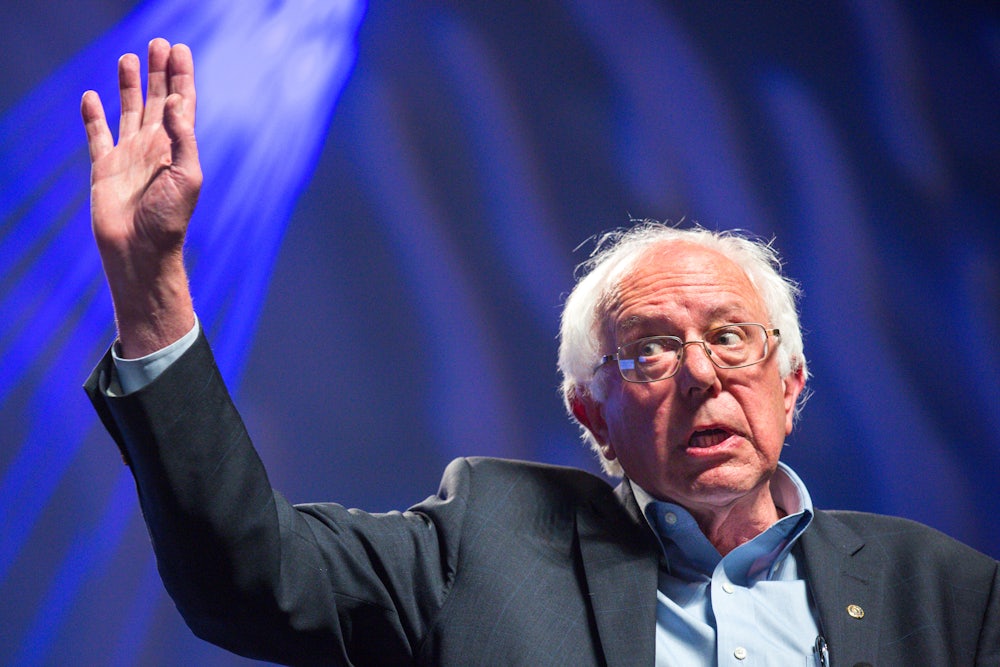A year ago at Netroots Nation, billed as America’s largest annual gathering of progressives, Black Lives Matter protesters famously interrupted Bernie Sanders’s address to the conference. Many viewed Sanders’s response as churlish and dismissive, and his campaign responded by changing his message significantly to foreground issues of racial justice.
This year in St. Louis, the opening keynote session featured colleagues of the organizers of that protest. Black Lives Matter activists were no longer the conference insurgents, but its establishment. And they celebrated that victory.
“I want to give a shout out,” said Rika Tyler of Hands Up United, “to the fem folks who shifted the political conversation in America.”
“There would never be a Bernie Sanders without organizers like the ones up here,” said Reverend Osagyefo Sekou of the Martin Luther King Institute at Stanford University. “There is no Bernie Sanders without these people taking the streets. That’s the context for this movement.”
To an extent, this is true. Sanders has always maintained that political revolutions begin from the bottom. And at Netroots, there’s a determination to carry that forward. Gone are the speeches to attendees, replaced with diverse, inclusive discussions with everybody on the same level. The walls between political gatekeepers and individual activists have been broken down.
Granted, this change to the conference structure is also a reflection of its reduced size: This year’s event is noticeably smaller, due in part to its coming just a week and a half before the Democratic National Convention. Big political names like Sanders are mostly absent. (Senators Jeff Merkley and Tammy Baldwin are on panels in the next two days, along with a handful of members of Congress. Hillary Clinton will reportedly address the conference by video on Saturday.)
The candidates who did make it to St. Louis are positioning themselves as part of Sanders’s army, trying to draft off that movement energy. Many that I spoke to were excited that Sanders brought new voices into the political conversation, and are eager to join him in organizing in the years to come. Sanders announced the formation of three new organizations this week to engage in that work, training and funding hundreds of candidates and fighting for progressive issues. “We want to be a willing partner,” said Jim Dean of Democracy for America.
On the other hand, the scramble for the Sanders vote does elide the fact that Clinton won the primary. You can see in these pronouncements a kernel of denial. After all, come January, progressives likely will remain outside the gates of power. Some at the conference are working to change that, by trying to figure out how to influence the Clinton campaign and make sure the executive branch is stocked with allies instead of adversaries. That requires making amends after a divisive primary. “The progressive movement is healing, and healing hurts,” said Nahal, a first-time conference-goer. “You don’t want that alcohol on your wound.”
But the ultimate unifying force looms in the general election. The threat of a Donald Trump presidency has muted much of the anger, and focused attention on core issues and challenges rather than personality conflicts. “It’s important that we look beyond November,” said Gregory Cendana of the Asian Pacific American Labor Alliance. “No matter who is elected, we have work to do.”
Tef Poe, the rapper and activist, put the Trump phenomenon in the context of the longtime plight of oppressed communities.
“We’ve all been living in Donald Trump’s America,” he said at the Thursday night keynote. “The rest of you are scared that it will become America. It’s the reality I grew up in.”
